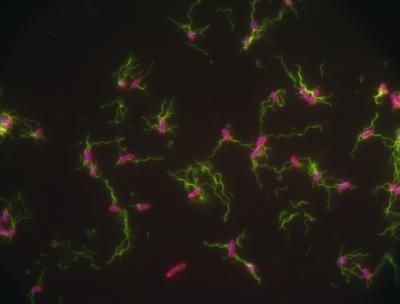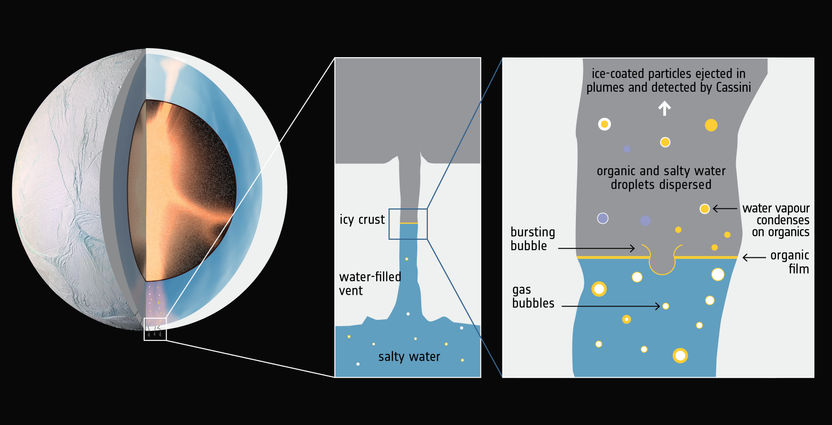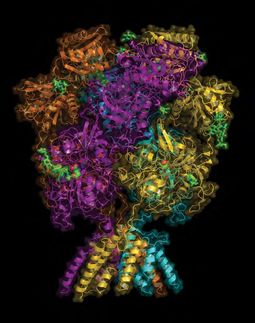Largest academic-industry collaboration for drug discovery in depression and schizophrenia launched
An international consortium of scientists, led by H. Lundbeck A/S and King's College London, has launched one of the largest ever research academic-industry collaboration projects to find new methods for the development of drugs for schizophrenia and depression.
Novel Methods leading to New Medications in Depression and Schizophrenia (NEWMEDS) is a unique project, bringing together top scientists from academic institutions with a wide range of expertise, and partnering them with nearly all major global drugs companies including AstraZeneca, Eli Lilly, GlaxoSmithKline, Janssen Pharmaceutica, Novartis, Orion, Pfizer, Roche, Servier and Wyeth.
Other academic institutions involved are: Karolinska Institutet (Sweden), The University of Cambridge (United Kingdom), Central Institute of Mental Health (Germany), CSIC (Spain), the University of Manchester (United Kingdom) and the Bar Ilan University (Israel). A further two pharmaceutical small and medium-sized enterprises (SME), deCODE (Iceland) and Psynova (United Kingdom) will contribute to the success of NEWMEDS, while the SME GABO:mi (Germany) will be managing the project.
With a wealth of new knowledge and research findings related to schizophrenia and depression emerging every year, it has been hard to take these findings from the bench to the clinic. The researchers believe there to be three major bottlenecks that are holding the field back: a lack of accurate animal models to guide the drug discovery, a lack of tools and tests in healthy volunteers that can provide early indication of efficacy; and the reliance of clinical trials on symptom-based Diagnostic and Statistical Manual categories which inevitably leads to biologically heterogeneous groups of patients. NEWMEDS aims to overcome these limitations with a novel approach to drug discovery and strong collaboration within the consortium.
The main objective of NEWMEDS is to develop new models and methods to enable novel treatments for schizophrenia and depression. The project will focus on developing new animal models which use brain recording and behavioural tests to identify innovative and effective drugs for schizophrenia. The project will develop the hardware and analysis techniques to apply brain imaging, especially MRI and PET imaging to drug development. It will examine how new genetic findings (duplication and deletion or changes in genes) influence the response to various drugs and whether this information can be used to choose the right drug for the right patient. And finally, it will try and develop new approaches for shorter and more efficient trials of new medication – trials that may require fewer patients and give faster results.
Most read news
Topics
Organizations
Other news from the department science

Get the life science industry in your inbox
By submitting this form you agree that LUMITOS AG will send you the newsletter(s) selected above by email. Your data will not be passed on to third parties. Your data will be stored and processed in accordance with our data protection regulations. LUMITOS may contact you by email for the purpose of advertising or market and opinion surveys. You can revoke your consent at any time without giving reasons to LUMITOS AG, Ernst-Augustin-Str. 2, 12489 Berlin, Germany or by e-mail at revoke@lumitos.com with effect for the future. In addition, each email contains a link to unsubscribe from the corresponding newsletter.
Most read news
More news from our other portals
Last viewed contents

Fraunhofer-Institut für Toxikologie und Experimentelle Medizin (ITEM) - Hannover, Germany

Mechanism uncovered behind Salmonella virulence and drug susceptibility - Although mechanism had not been recognized before, evidence shows similar mechanism of protein modification occurs in all 5 kingdoms of life






















































